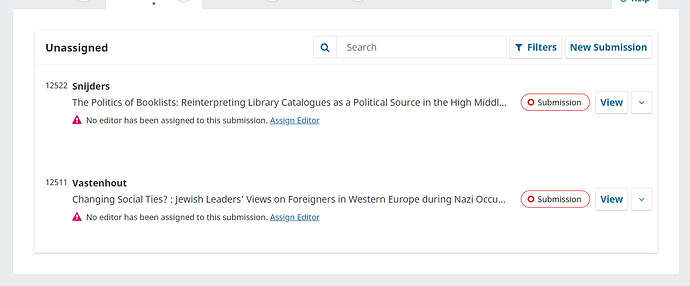Using OJS 3.3.0.8
What I’d like to get is all the necessary steps (via REST API) to “Submit an Article” as in the “Submission Wizard”: 1. Start, 2. Upload Submission, 3. Enter Metadata, 4. Confirmation, 5. Next Steps.
Is this via REST API possible at all?
When creating a submission via Create a new submisssion the Submission is counted in the GUI (under Unassigned and under All Active) but it is not shown in the list.
What are the necessary steps to do it via REST API?
After “Create a new submission” I’ve tried Create a Publication. The documentation tells that
the path parameters publicationId and submissionId are required. But publicationId is not accepted.
# the path parameter "publicationId" returns an "api.404.endpointNotFound" error
$ curl -s \
> -X POST \
> "http://www.examle.com/index.php/ziaf/api/v1/submissions/${SUBMISSION_ID}/publications/1?apiToken=${API_TOKEN}" \
> -H "Accept: application/json" \
> -H "Content-Type: application/json"
{"error":"api.404.endpointNotFound","errorMessage":"The requested URL was not recognized."}
# the submission is there with no publication items
$ curl -s \
> -X GET \
> "http://www.example.com/index.php/ziaf/api/v1/submissions/${SUBMISSION_ID}/publications?apiToken=${API_TOKEN}"
{"itemsMax":0,"items":[]}
# requesting with POST we get a "<h1>404 Not Found</h1>"
$ curl -s \
> -X POST \
> "http://www.example.com/index.php/ziaf/api/v1/submissions/${SUBMISSION_ID}/publications?apiToken=${API_TOKEN}" \
> -H "Accept: application/json" \
> -H "Content-Type: application/json"
<h1>404 Not Found</h1>
